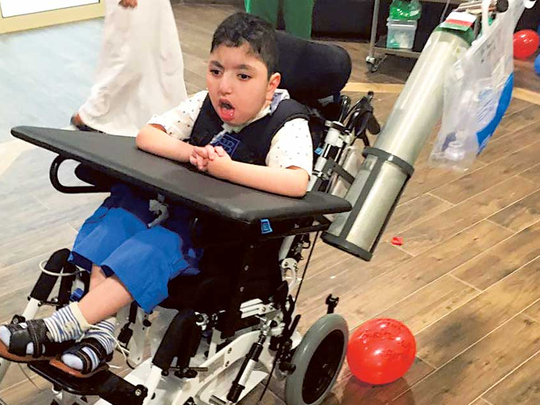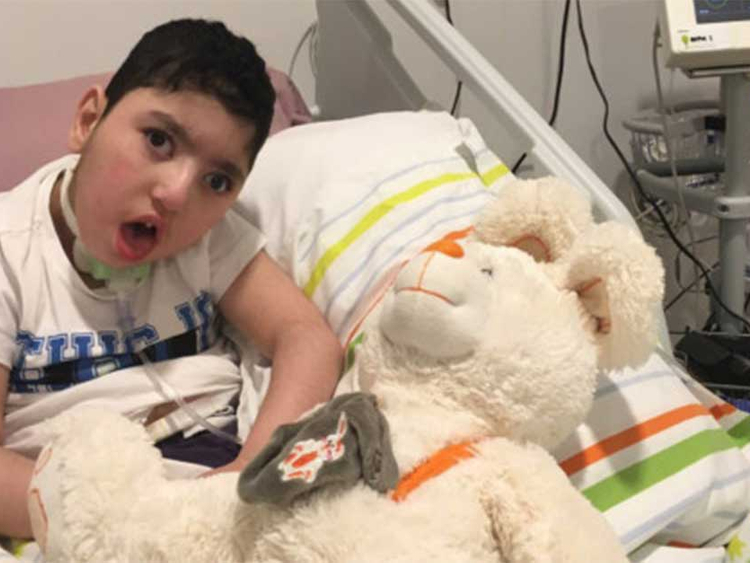
Abu Dhabi: Seven years ago, doctors told Umm Hamad that the baby she was carrying would not live for more than a few days.
Today, Hamad is seven, and with constant medical care, is slowly beginning to display voluntary movement and interact slightly with those around him.
With the recent changes to the insurance law, however, his mother is worried. Without the kind of care and attention Hamad receives at a long-term care facility, he may not make progress, she says.
“My second-born son has finally begun to lift his hand when I greet him. He now rubs his eyes to show he is sleepy, and this is a testament to the constant support he receives from therapists, nurses and other medical staff. If this is taken away from him, I am afraid he will never be able to develop other skills or live a full life,” the 28-year-old Emirati told Gulf News.
Hamad was born preterm, and according to his mother, her womb did not have enough amniotic fluid, resulting in his developmental delays. According to his medical reports, he now has chronic respiratory failure, suffers from infantile cerebral palsy (a condition marked by impaired muscle coordination), and requires a ventilator for breathing. He is also prone to sudden seizures.
He requires assistance to be moved, bathed and cleaned. But propped up, he can sit and stand for a short while.
His medical bills amount to Dh88,350 per day, and a 20 per cent co-payment is equal to Dh17,670. Every year, this would sum up to more than Dh600,000. Umm Hamad says her family would never be able to bear the cost.
“I can see that Hamad needs the kind of care that he gets here. To someone else, the fact that he rubs his eyes may seem simple but I know how long it has taken him to get this far. Having seen this improvement, which mother in my position would want to move her son?” she added.
Two years ago, Hamad was taken to swimming with a dolphin by facility staff.
“Hamad cannot speak or smile, but as his mother, I could feel that he was enjoying the experience. He would not get this chance if he were simply occupying a hospital bed,” she said.
“The doctors occasionally take him off the ventilator, but Hamad cannot withstand prolonged periods of time without it. And since his seizures are sudden and unpredictable, we cannot consider home-care,” the worried mother said.
“I would like to appeal to the authorities to reconsider our case, and I have full faith that this country and its leaders will not leave its children out in the cold,” she added.













